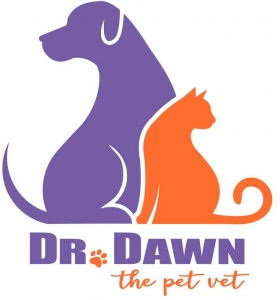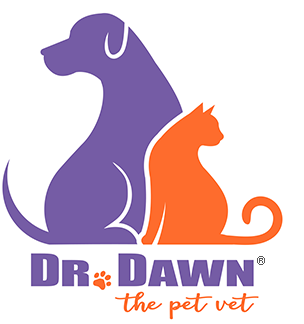Pet owners are often tempted to give table scraps to their pets. Unfortunately, there are some types of human foods that can be toxic. Here are some foods to avoid feeding, and why.
1. Moldy foods: They may contoin tremorgenic mycotoxins, which are classified as neurotoxins. They can cause muscle tremors, disorientation and convulsions. These can last for several days. Intoxications have been reported in several species; however, dogs that roam or have access to spoiled foods are more at risk. Early, aggressive treatment by a veterinarian is key.
2. Chocolate: Chocolate is a mixture of cocoa beans and cocoa butter. Theobromine and caffiene are both toxic (classified as methylxanthines). Dogs are sensitive to them, and depending on the dose, you might see hyperactivity, increased heart rate, tremors, and potentially death. You may also see vomiting, diarrhea, increased thirst and urination, and lethargy.
The general rule is the more bitter the chocolate, the more toxic it may be. Unsweetened baking chocolate contains almost 7 times as much toxic chemical than mild chocolate. Veterinarians will recommend inducing vomiting, and other treatments to prevent absorption.
3. Onions: Pieces of onion, onion powder, or even cooked onion, can cause serious anemia of both dogs and cats. There have even been reports of toxicity in cats fed baby food containing onion powder. Signs you may see include weakness, pallor, vomiting, and dark, pigmented urine. Treatment, in addition to inducing vomiting and absorption of the toxins, may involve blood transfusions.
4. Macadamia Nuts: Dogs can have signs of toxicity after eating these nuts. Signs include weakness, depression, vomiting, disorientation, tremors, and overheating. Treatment includes inducing vomiting, blocking toxin absorption, and possibly enemas.
5. Rising bread dough: Dogs may have life threatening reactions to this seemingly harmless food. The animal’s body heat will cause the dough to rise in the stomach. Ethanol can then be produced, which will cause the dough to further expand several times its original size.
Clinical signs of ethanol toxicity and foreign body obstruction can result, including severe abdominal pain, bloating, vomiting, incoordination and depression. Treatment may include induction of vomiting, plus pain medication, cool water administration by a veteriarian, plus blood monitoring.
6. Grapes and Raisins: Some types of grapes and raisins have been shown to cause kidney failure in dogs. The toxic amount is not yet known, so any amount could be dangerous, and thus should be avoided. Aggressive medical treatment is indicated, in addition to inducing vomiting, and blocking absorption of the ingesta.
Hopefully this is helpful. If your pet eats any of the above, call your vet.
Dr. Dawn
Please share and subscribe here






